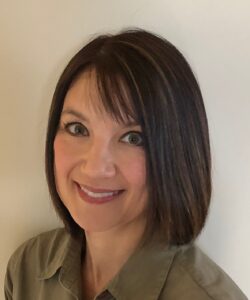DEEPENING RECEPTIVITY TO NEURODIVERSITY
A NEUROSCIENTIFICALLY INFORMED INTEGRATION OF PSYCHOANALYTIC PSYCHOTHERAPY, RECIPROCAL PREDICTION, AND MINDFULNESS
Dr Michelle van den Engh, MD, FRCPC, FIPA
 Saturday, 7 December
Saturday, 7 December
11 a.m. (EST- Eastern USA)
Registration is now closed.
Please click here to watch the recording of this event.
Start time in selected time zones
 This webinar will be approximately two hours long.
This webinar will be approximately two hours long.
Receptivity, the capacity to be open and attuned to our patients’ experience, is a vital aspect of the psychoanalytic endeavor. It is even more so when we meet neurodiversity. Realms of experience may emerge that seem to elude us. Precipitously formulated ideas in the therapist, based on a neurotypical frame of reference, risk impinging upon the discovery of our patients’ authentic world. It is essential to slow down, dive deeper, and tune our receptivity.
This webinar will describe a clinical journey of deepening receptivity to neurodiversity through the close study of a therapist and patient working together in psychoanalytic psychotherapy. Throughout our therapeutic venture, the regular interweaving of neuroscientific and psychoanalytic perspectives offered a powerful matrix from which an enriched understanding of our unfolding process could emerge. Psychoanalytic concepts, including evenly suspended attention, unconscious-to-unconscious communication, Bion’s container/contained model, and negative capability, will be examined alongside neuroscientific insights into the stress response, mirror neurons, memory systems, and the default mode network. A predictive coding lens will introduce a view of the therapeutic exchange as a continuous reciprocal prediction, evoking the hypothesis that lessening the hold of prior predictions and opening awareness to incoming signals may deepen therapist receptivity. Mindfulness practice will be explored as a possible means for therapists to become more aware of subtle moment-to-moment signals during therapeutic interactions and to attenuate the influence of self-referential evaluation. At this juncture, webinar participants will be invited to engage in an optional experiential mindfulness exercise to tune into their here-and-now inner experience. We will then transition to a collaborative discussion segment, providing space for participants to share their experiences and insights on deepening their receptivity to discover new understandings with transformative potential, at both explicit and implicit levels, and across diverse clinical contexts.
Optional Pre-reading
van den Engh, M. (2024). “I’m a fish!” Deepening receptivity to neurodiversity: a neuroscientifically informed integration of psychoanalytic psychotherapy, reciprocal prediction, and mindfulness. Neuropsychoanalysis, 26(1), 57–71.
https://doi.org/10.1080/15294145.2024.2335655
Registrants will be provided with an EPUB link to the full article (read-only) prior to the webinar.
Current members of the International Neuropsychoanalysis Society above the Standard level have online access to the Journal, with the ability to read and download the full-text article.
Bio
Michelle van den Engh is of Dutch and Chinese heritage, grew up in Switzerland, and transited through Australia, the United States and back to Switzerland before landing as a settler in Canada. She is a psychiatrist, psychoanalyst, and Clinical Associate Professor in the Department of Psychiatry at the University of British Columbia (UBC). As a graduate of the Western Canada Psychoanalytic Society and Institute (WCPSI), she became a Fellow of the International Psychoanalytic Association (IPA) and is a faculty member at WCPSI. Additionally, Michelle is an avid Clinical Fellow of the International Neuropsychoanalysis Society and has completed certification training in mindfulness-integrated CBT (MiCBT). She maintains a private practice with a focus on psychotherapy and also serves in the role of Vancouver Island Site Director for Psychotherapy Training in the UBC Department of Psychiatry Postgraduate Education Program. Her favorite basic emotion systems are SEEKING, CARE and PLAY.
CPD credits: 2
(Please click here for further information regarding CPD credits.)